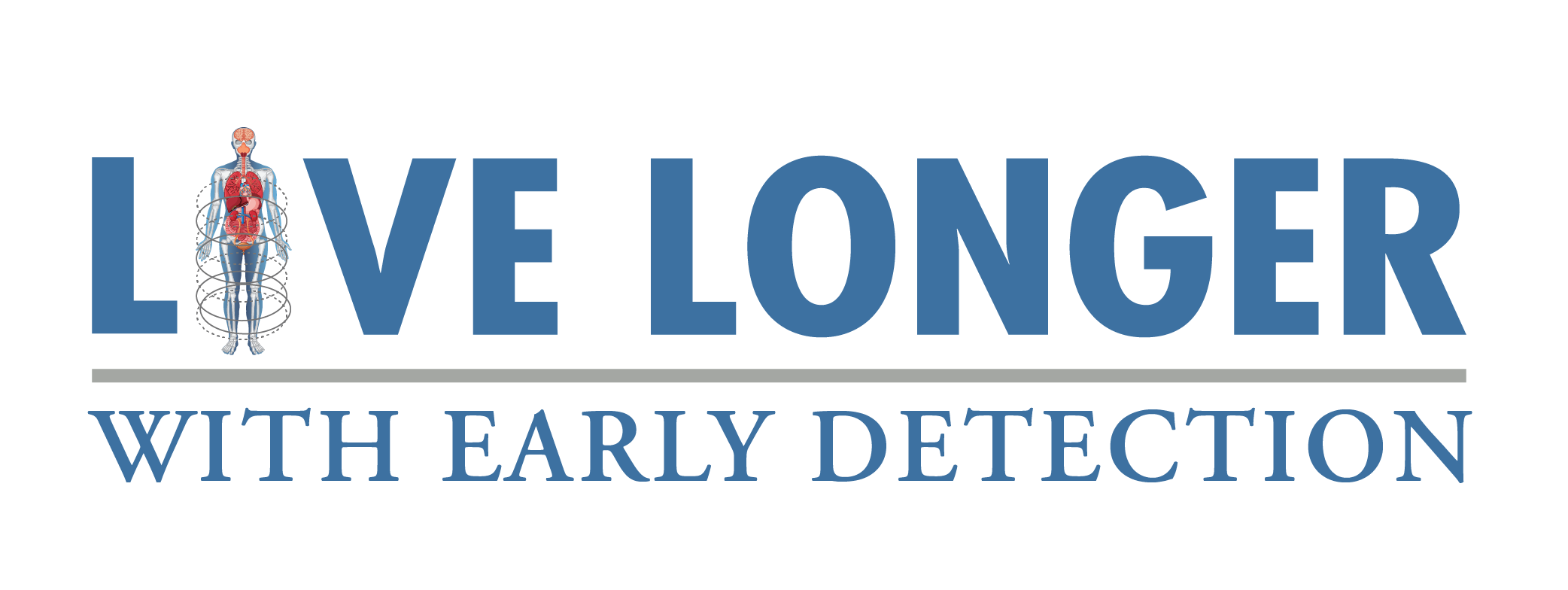
In the journey to combat Alzheimer’s disease, early detection stands as a critical ally. Live Longer With Early Detection emphasizes the crucial role of Alzheimer’s screening in altering the course of this challenging condition. Understanding the importance of early screening and the methods employed can be life-changing for individuals at risk of Alzheimer’s disease.
The Importance of Early Detection in Alzheimer’s Disease
In the battle against Alzheimer’s disease, one of the most formidable weapons is early detection. Live Longer With Early Detection underscores the pivotal role of early screening in managing and understanding this complex condition. Recognizing the signs of Alzheimer’s at an early stage can dramatically alter its impact on individuals and families.
Enhancing Quality of Life
Early detection of Alzheimer’s disease allows for interventions that can significantly enhance the quality of life for individuals. These interventions may include targeted therapies and lifestyle changes that can help manage symptoms more effectively and slow disease progression. Early diagnosis also gives individuals and families time to plan for the future. This might involve making important decisions regarding care options, living arrangements, and financial planning, which are easier to manage when addressed early in the disease’s progression.
Slowing Disease Progression
Identifying Alzheimer’s early opens the door to emerging therapies that might be more effective in the initial stages of the disease. These treatments can potentially slow the progression of symptoms and improve cognitive function. Early detection also enables individuals to make lifestyle adjustments that can help mitigate symptoms. Strategies such as cognitive exercises, dietary changes, and increased physical activity can contribute to better management of the condition.
Live Longer With Early Detection’s Approach to Alzheimer’s Screening
Live Longer With Early Detection adopts a holistic and patient-centric approach to Alzheimer’s screening. Their methodology is not only thorough and advanced but also empathetic, recognizing the sensitive nature of Alzheimer’s disease and its profound impact on individuals and families.
In-depth evaluations for Early Signs
The screening process for Alzheimer’s is designed to detect early signs of cognitive impairment. This comprehensive process may include memory tests, cognitive function assessments, and evaluations of language and problem-solving skills. The aim is to identify any early indicators of Alzheimer’s that can be crucial for timely intervention. The organization utilizes a range of advanced diagnostic tools and methodologies in its screening process. These tools might include neuroimaging techniques like MRI or PET scans to detect brain changes indicative of Alzheimer’s, as well as biomarker tests that can provide insights into the biochemical changes associated with the disease.
Tailored Screening to Individual Needs
Recognizing that Alzheimer’s symptoms can vary greatly among individuals, Live Longer With Early Detection tailors its screening process to suit each person’s specific circumstances. This personalized approach ensures more accurate and relevant screening outcomes. Beyond initial screening, the organization also offers continuous monitoring services. This approach allows for the tracking of any changes or developments over time, providing a more complete picture of an individual’s cognitive health.
Supportive and Informative Environment
Understanding the emotional toll that Alzheimer’s screening can have on individuals and families, Live Longer With Early Detection provides a supportive and caring environment. They offer emotional support and guidance throughout the screening process, ensuring that patients and their families feel understood and supported. The organization places a strong emphasis on education, providing patients and their families with comprehensive information about Alzheimer’s disease, the screening process, and potential next steps post-diagnosis. This educational approach empowers individuals to make informed decisions about their health and care.
Utilizing Advanced Diagnostic Tools
Live Longer With Early Detection integrates cutting-edge diagnostic tools in its Alzheimer’s screening process. These advanced technologies are crucial for accurately detecting early signs of Alzheimer’s and facilitating timely interventions and management strategies.
State-of-the-Art Imaging Techniques
One of the key diagnostic tools used in Alzheimer’s screening is neuroimaging. Techniques like Magnetic Resonance Imaging (MRI) and Positron Emission Tomography (PET) scans are utilized to observe the structure and function of the brain. These scans can reveal characteristic changes associated with Alzheimer’s, such as brain atrophy or abnormal protein deposits, even in the early stages. The use of such imaging techniques enhances the accuracy of Alzheimer’s diagnosis. Early detection of physical changes in the brain allows for a more precise understanding of the disease’s progression and the implementation of appropriate treatment plans.
Biomarker Testing for Alzheimer’s
Biomarker testing is another advanced tool in the arsenal of Alzheimer’s screening. This involves analyzing biological samples, such as blood or cerebrospinal fluid, to identify specific markers that indicate the presence of Alzheimer’s disease. Biomarker testing is a step towards predictive diagnostics in Alzheimer’s care. It allows for the identification of the disease even before symptoms become apparent, which is crucial for proactive management and research into new treatments.
Cognitive Testing and Assessment Tools
In addition to imaging and biomarker tests, Live Longer With Early Detection employs various cognitive testing and assessment tools. These tests evaluate memory, language skills, problem-solving abilities, and other cognitive functions to identify subtle changes that might indicate the onset of Alzheimer’s. Recognizing the diversity in how Alzheimer’s presents, these cognitive assessments are tailored to individual patients. This personalization ensures that the evaluations are relevant and sensitive to each individual’s specific situation and stage of life.
The Benefits of Early Alzheimer’s Screening
Early Alzheimer’s screening, as championed by Live Longer With Early Detection, offers numerous benefits that can significantly change the trajectory of the disease and the lives of those affected by it. These advantages highlight the critical importance of early detection in managing Alzheimer’s disease.
Facilitating Early Intervention
Early detection of Alzheimer’s allows individuals to access treatment and management strategies at a stage when they are likely to be most effective. This can include pharmacological interventions, lifestyle modifications, and cognitive therapies that can slow disease progression and improve quality of life. Early diagnosis also opens up opportunities for patients to participate in clinical trials for new treatments and therapies. This can provide access to cutting-edge treatments and contribute to research that may benefit future Alzheimer’s patients.
Planning for the Future
An early diagnosis of Alzheimer’s empowers individuals and their families to make informed decisions about future care and arrangements. This proactive planning can help manage the emotional and financial implications of the disease more effectively. Early screening also provides time for psychological and emotional preparation. Coming to terms with an Alzheimer’s diagnosis is challenging, and early detection gives individuals and their families more time to process the information and seek support.
Enhancing Research and Understanding
Early detection contributes valuable data to Alzheimer’s research. Understanding the early stages of the disease can help researchers develop more effective treatments and possibly preventive strategies. Through early screening, there is an opportunity to improve the overall understanding of Alzheimer’s disease. It helps in identifying patterns and risk factors associated with the early onset of the disease, which can be crucial for developing broader preventive measures.
Emotional and Psychological Support
Early detection also means that patients and their families can seek emotional and psychological support sooner. Support groups, counseling, and educational resources can provide much-needed guidance and comfort.
Success Stories and Impact
Live Longer With Early Detection has numerous success stories where early screening for Alzheimer’s has positively impacted lives. Patients and families often express gratitude for the early insight, which allowed them to take control of their situation and make proactive choices. The success stories also contribute to a broader understanding of Alzheimer’s. Each story helps destigmatize the condition and promotes a more informed dialogue about the disease, its impact, and the importance of early screening.
Looking Ahead: The Future of Alzheimer’s Care
The future of Alzheimer’s care is promising, with continuous advancements in screening techniques. Live Longer With Early Detection stays at the forefront of these advancements, ensuring that their screening methods are as effective and accurate as possible. The organization also plays a crucial role in advocacy and raising awareness about Alzheimer’s. By emphasizing the importance of early screening, they contribute to a future where Alzheimer’s is detected and managed more effectively, offering hope to millions affected by the disease.
Pioneering a New Era in Alzheimer’s Management with Early Detection
Early detection of Alzheimer’s empowers individuals and their families to chart a course for proactive care. It opens doors to early treatment options, lifestyle modifications, and comprehensive planning that collectively contribute to a more manageable journey with the disease. The journey with Alzheimer’s is not one to be walked alone. Live Longer With Early Detection fosters a community of support, providing patients and families with the resources and connections needed to navigate the challenges of Alzheimer’s with strength and resilience.
The insights gained from early screening are invaluable, not just for patients but also for the broader medical community. They drive research and innovation, paving the way for new treatments and, ultimately, a deeper understanding of Alzheimer’s disease. Live Longer With Early Detection is at the forefront of advocating for wider awareness of Alzheimer’s. By highlighting the importance of early screening, they play a critical role in changing the narrative around Alzheimer’s from one of uncertainty to one of informed action and hope.
As medical science evolves, so does the approach of Live Longer With Early Detection. They remain committed to integrating the latest advancements in Alzheimer’s screening and management, ensuring that their services remain at the cutting edge of medical progress. At Live Longer With Early Detection, individuals and families find a steadfast partner in their health and wellness journey. Their commitment to excellence, compassion, and comprehensive care makes them an indispensable ally in the fight against Alzheimer’s.

